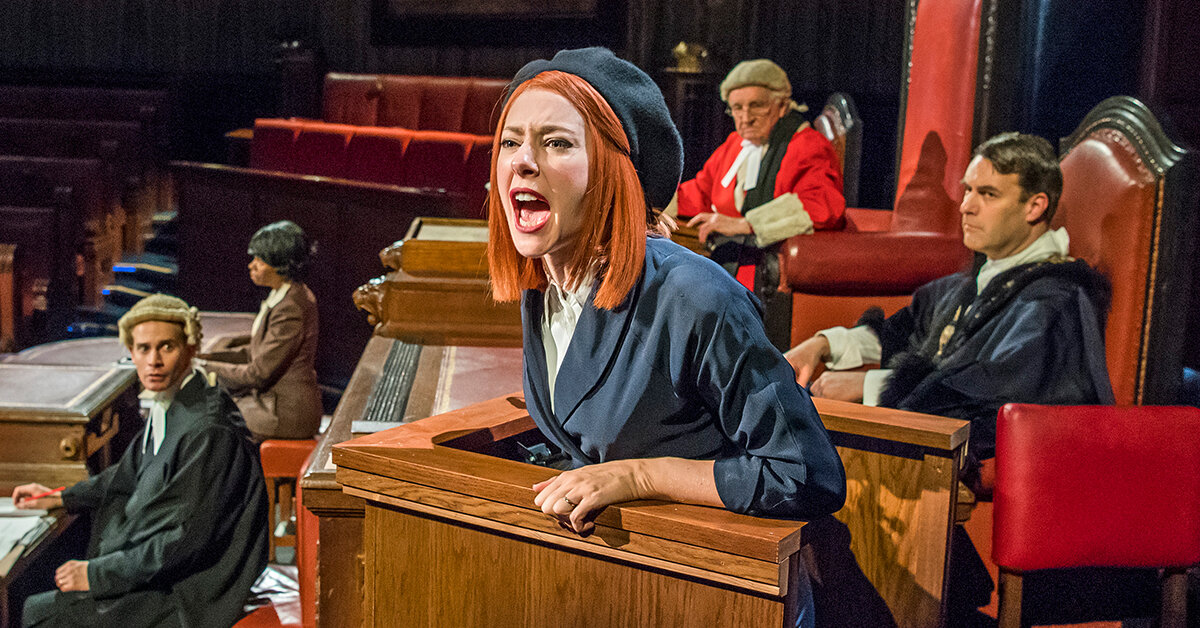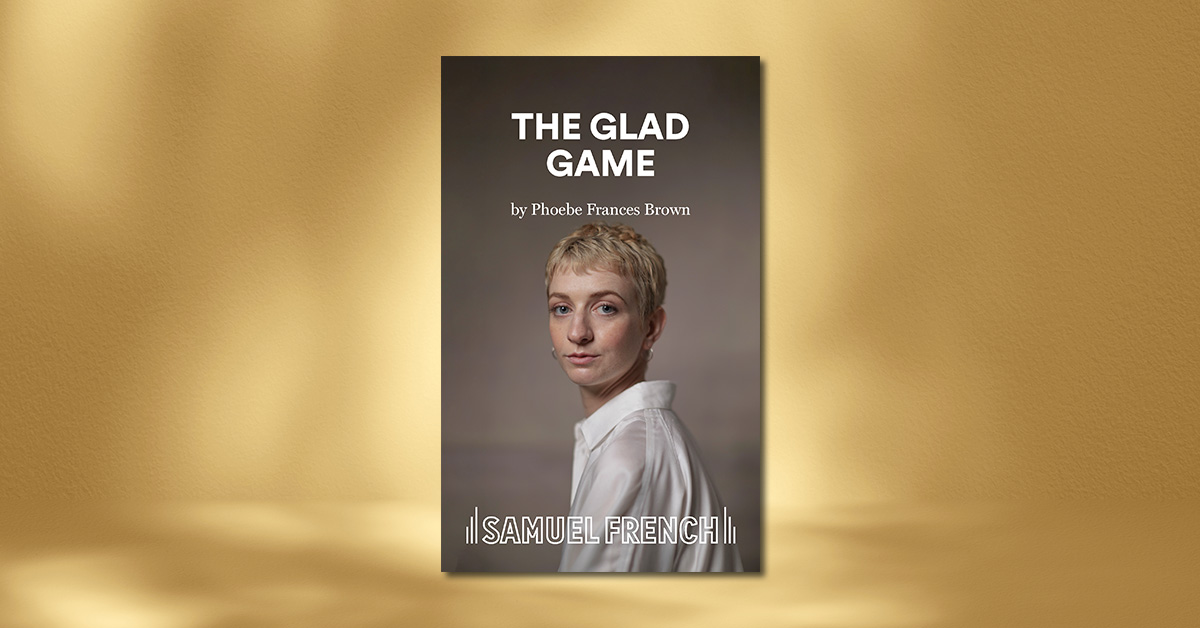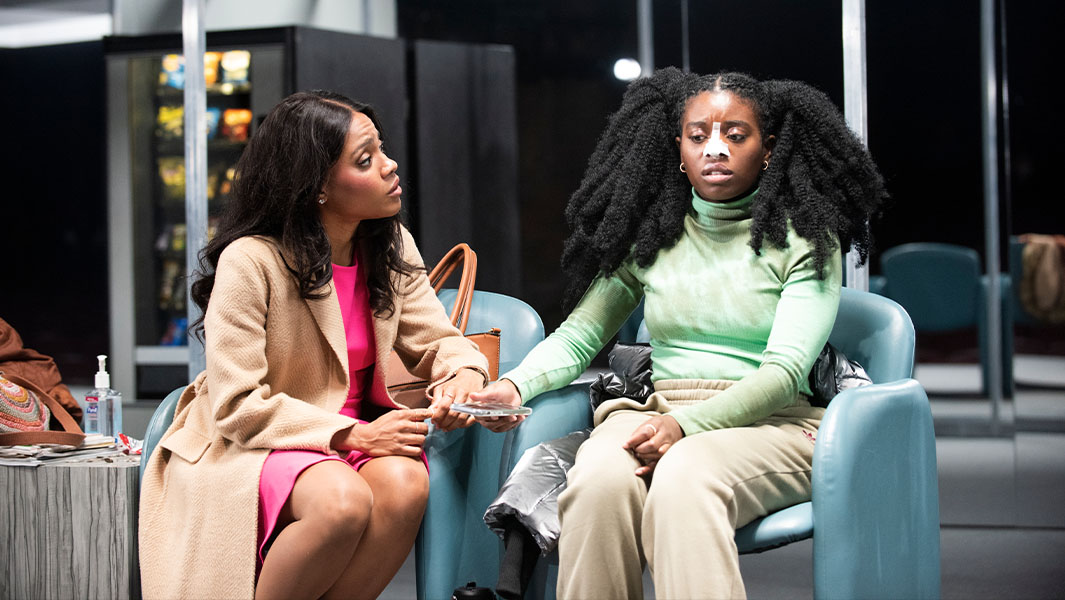
Sam Kenyon is the writer and composer behind the fantastic musical Miss Littlewood, which follows the life and experiences of theatre great, Joan Littlewood. Find out more about what inspired the songs in the show and how it all came together, and get tips on how to put on your own production of Miss Littlewood.
There are many directors that have made a mark on the world of theatre. How did you settle on telling the story of Joan Littlewood?
I’d always wondered what it would be like to be reading a book and to feel that the characters and situations lent themselves specifically to the world of musical theatre – thinking of Gypsy or Evita, for example – and had always hoped that I would find such inspiration myself. In Joan’s Book [The Autobiography of Joan Littlewood], the moment when she decides to quit RADA and to walk all the way to Manchester struck me as so epic and grand that only either a movie or a musical could do it justice. I immediately began to make notes, and contacted Murray Melvin (with whom I’d worked some years earlier) to begin my research around her story. So it was Joan’s own ebullient personality – through her writing – that triggered my desire and ambition to turn her story into a musical. As I began to make inquiries, the enthusiasm for my project that I received in return buoyed me up no end, not least when I received a call from Hal Prince’s office saying that he “couldn’t wait” to reminisce with me!
How did you decide on the key moments that would become the musical elements of the piece?
I found myself inspired to write songs either by moments in the book or through the interviews that I undertook. For example, Barbara Windsor talked of how her career to date had been either comedic or playing someone’s sidekick, saying, “Joan made me feel really good about myself”. This motivated me to write the duet, ‘Where Have You Been All My Life?’
I wrote a number of the songs before the script, so those moments of inspiration in song form automatically became significant beats within the structure of the show as it developed. The final number, ‘A Decent Day’, for example, was one of the first I wrote. Everything then led to this.
I wanted to make the show accessible for an audience who knew nothing of Joan or her work. So for the first iterations of ‘The Theatre Workshop Story’, I wanted to convey a bunch of historical narrative and information in an economical and catchy format. Act II’s ‘The Theatre Workshop Story: Lovely War reprise’, represents Joan’s return to the research and style of those earlier days, which was what the original show had denoted in 1963.
For the ‘A Taste of Honey’ sequence, I wanted to use the language of contemporary pop music to convey the youth of the writers and the sheer catchiness of those shows, as well as the, perhaps inevitable, demise of that particular snowball in the form of ‘They Might Be Giants’.
As a show about the theatre, I wanted to offer up formats that might not have been seen before within that idiom. Hence a duet between the past and the present (‘Now’), which also helps the audience to feel the ultimate weight of Joan’s grief for Gerry; a musical return ticket (‘Paris is a Woman’), and a septet for the same character (‘Nothing Much Happened After That’).
I also wanted the show to know its own predecessors, so where Carousel’s ‘Soliloquy’ shows an expectant father imagining his future child, ‘My Father’s Eyes’ stages a teenage girl’s fantasies of her absent father.
There are seven different Joans throughout the musical. What made you want to tell the story through so many different voices?
Throughout the autobiography, I feel that there is both the Joan who is at the heart of the action, and the Joan who is looking from some historical distance, adding her specific vocabulary and hindsight. I’ve also always loved those op-eds where a figure is asked something like, ‘What advice would you give your fifteen-year-old self?’, and thought that the theatre could lend itself well to some humorous exploration of this. So, the moment when Joan recasts herself in the middle of ‘My Father’s Eyes’ offers us both a sense of her theatrical habit of breaking the fourth wall, and her notorious brutality when it came to hiring and firing actors.
I plumped for the figure of seven as a response to Jacques’ ‘Seven Ages of Man’ speech in As You Like It – where was the equivalent for women? I also relished the fact that, as a result of this decision, reprises offered the opportunity for commentaries on action from earlier versions of herself. When I told Murray, he said “Thank god for that! Everyone asks me ‘what was she like?’ – and I want to say: ‘which one?’” – so I felt that I had hit on something which was intrinsic to Joan’s character: her fluidity and changeability.
There are also, of course, too few parts for women in theatre in general, and as a man writing a show, I felt an onus to play my part in addressing this deficit.
Do you have a favourite song from the show?
What a tantalising question! There are songs that I feel particularly satisfied with from a narrative and/or compositional point of view, such as ‘The Trouble with Theatre’, the spikiness of which I feel conveys the brittle, mildly aggressive characteristic of Joan’s nascent critical voice with some satisfactory relish. As a love letter to Paris, ‘Paris is a Woman’ is a number that constantly surprises me in its ability to evoke that particular city. But if I really had to choose, I’d struggle between ‘Nothing Much Happened After That’, the apotheosis of the decision to have seven Joans, as well as the opportunity to convey the sense of bathos that often follows a great success, and ‘A Decent Day’, which is my acknowledgement of where Joan herself places the full stop in her narrative, i.e. at the moment of the death of Gerry, in 1975.
This latter title came from a conversation in the bar at Stratford East with Murray, following one of our interviews. He was telling me about meeting Joan twenty-odd years after Gerry’s death. His mother had recently died, and Joan asked him how he was doing. He said he was having a difficult day. Her response? “I haven’t had a decent day, since.”
Do you have any advice for anyone wanting to stage Miss Littlewood?
If at any point it feels at risk of becoming too emotional, just shrug. The piece seems to touch people in many different ways, and it is vital that this emotional experience is had by the audience, not the performers.
Don’t feel that you need anything other than the bare minimum of props, costumes or scenery to tell the story.
Is there any other theatrical great that whose journey you would want to write about for the stage?
I bet Sarah Bernhardt would make an interesting subject; I’d also be curious about Pearl Bailey and, on the musical front, Billy Strayhorn has a fascinating story. But in addition to being about Joan, Miss Littlewood is my love letter to theatre itself, with its ravishing delights and concurrent frustrations. Out of fear of repeating myself, therefore, I don’t anticipate writing about that world again.
If you’d like to bring Miss Littlewood’s story to life on stage, it is now available to license, or you can also purchase a copy of the play!
Why not listen to tracks from the show to get yourself inspired?
We and our partners use cookies to personalize your experience, to show you ads based on your interests, and for measurement and analytics purposes. By using our website and our services, you agree to our use of cookies as described in our Cookie Policy.

Agatha Christie’s Witness for the Prosecution: Meet the Characters

The Glad Game – In Remembrance of Phoebe Frances Brown

